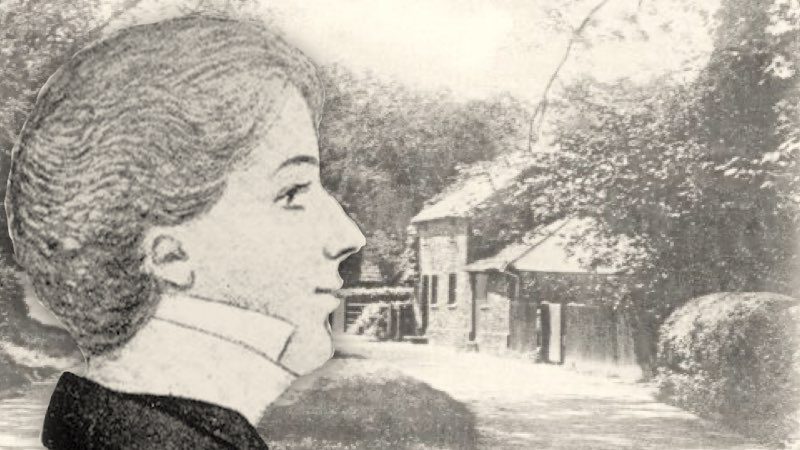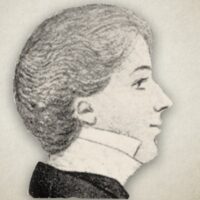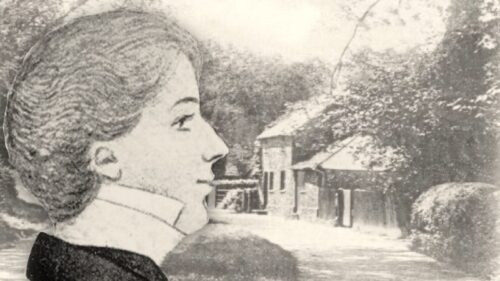
Two Distinct Natures
June 9, 1830
My dear Deborah,
I am rejoiced to think that you are so far humbled as to look to Christ alone for the salvation of your soul. You will find if you possess the Spirit of Christ that you will be despised and condemned by all in whose heart Satan reigns. But what does the Scripture say for your consolation? “Rejoice, and leap for joy.” “For the Spirit of glory and of God rests upon you. On their part He is evil spoken of, but on your part He is glorified.” You will doubtless try to justify yourself in holding such offensive doctrines, by appealing to the Bible, Litany, and Articles, but you cannot convince the natural man.
Do not be anxious to justify yourself, for it is a very small matter to be judged by man’s judgment; and a time will come when you will be justified before all, when millions must fall down, and you shall be able to stand in the perfect righteousness of Christ. You will find one or two only in the same rank of life holding these doctrines, and also a few despised poor people, who are derided and counted fools. My congregation is made up of several parishes, and some come very long distances occasionally. Of course I come off with a good share of abuse as a fool, a madman, a deceiver. But Paul says, “As deceivers, and yet true.”
It is a great privation to you not hearing the gospel, but the Lord will take care of His sheep and feed them. You had much better read the Bible than any other book; you can expect God’s blessing in reading it when it cannot be expected with any other. You will find some to consent with you, and then afterwards fly back to free-will and the power of man to begin the work. Grace has nothing to do with the flesh in carrying on the work. We are born again of the Holy Spirit, and consequently have a new principle within us, which is wrought upon by the word of God—”As new-born babes, desire the sincere milk of the word, that you may grow thereby,” etc. This new principle is of Christ, and will mortify the old man and reign in us; consequently we are led by the Spirit of God, and He bears witness with our spirit that we are His children, for by it we cry, Abba, Father.
The old man is never made better, the new man cannot sin. He cannot sin because he is “born of God”; that is, the new man; the old man is not born of God. It is the opposition of the two principles which causes the warfare. When you are brought to see the two distinct natures, it will afford you a clearer view of the spiritual life. “I am crucified with Christ; nevertheless, I live,” etc. You will meet with much opposition, but if you lose everything, you will count it gain for Christ’s sake.
Yours very affectionately,
William Tiptaft
William Tiptaft (1803-1864) was a Strict and Particular Baptist pastor. In 1831, he oversaw the construction of a chapel in Abingdon, where he remained as the Pastor until his death. John Hazelton wrote of him—
“William Tiptaft…exercised a ministry largely used to the awakening of sinners and to the driving of those who had only a name to live from the false confidences in which they trusted.” Joseph Philpot wrote of him—“He seemed ever ready to make any personal sacrifice for the glory of God or the good of His people. Time, money, health, strength, life itself, he did not consider his own. He felt he was but a steward who held them in trust, and who might be called at any hour to render an account of his stewardship. To live to God, to walk in His fear, to serve and please Him, to preach His truth, to do His work, to know and obey His will, and to be made a blessing to His people, seemed to be his daily end and aim. I have known men of greater natural abilities, of deeper and more diversified experience, of more shining pulpit gifts, of more enlarged views of Divine truth; but I have never seen anyone, whether minister or private Christian, who approached him in his own peculiar line of practical Godliness, carried out with undeviating consistency for the thirty-five years during which I had the pleasure and profit of his friendship. The Churches of truth needed an example of the practical power of the doctrines which they profess. A light, loose, Antinomian spirit had too much prevailed, and with a great deal of religious talking there was a very small amount of religious walking. But however low quickened souls or living Churches may sink, they have still a conscience made tender in the fear of God, and to this conscience William Tiptaft's keen, pithy remarks, and, above all, his Godly life and shining example, commended themselves."
William Tiptaft's Letters




